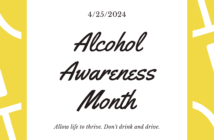By Shayvonne Renaud, Staff Writer
In today’s society people are very conscience about their health. We often make sacrifices in our diets for various reasons; be it our body’s general health, specific health concerns, or just in preparation for our best bikini bodies. So with all of these new studies and “miracle diets” thrown at us daily we take a closer look into our own kitchens and lifestyles. One of the biggest debates in health and fitness right now is between “real sugar,” and artificial sweeteners. So is Real sugar better than artificial sweeteners? Does it even really matter?
What are Artificial Sweeteners?
So, what is an artificial sweetener? Artificial sweeteners are manmade sugar substitutes, however they may be derived from natural substances including herbs and sugar itself. While real sugars such as brown sugar, cane sugar, and confectioners’ sugar, are derived from the earth, they can also be processed or refined during packaging. The U.S. Food and Drug Administration (FDA) have approved five artificial sweeteners as additives: Saccharin, Acesulfame, Aspartame, Neotame, Sucralose, and Stevia. These can be found in most brand name substitute sugars such as Sweet’N Low, Equal, and Splenda.
What are the benefits of Artificial Sweeteners?
According to the Mayo Clinic (a non-profit medical research and practice healthcare company), there are many benefits to artificial sweeteners.
- Unlike real sugar, Artificial sweeteners don’t contribute to tooth decay and cavities
- Artificial sweeteners aren’t harmful to diabetics since artificial sweeteners aren’t carbohydrates and can’t raise blood sugar levels
- Artificial sweeteners have essentially no calories, unlike real sugar
Critics often claim that artificial sweeteners can cause cancer and high blood sugar, according to the National Cancer Institute, there’s no scientific evidence that proves artificial sweeteners (that are approved by the FDA) is responsible for cancer or any other serious health problems. Foods and additives regulated by the FDA must be reviewed and approved before being made available. The FDA has also established an Acceptable Daily Intake (ADI) for each artificial sweetener, therefore it is relatively safe to consume as long as it is not abused. In a 2012, a scientific statement by The American Heart Association (AHA) and American Diabetes Association (ADA) approved the use of artificial sweeteners rather than sugar to reduce the risk factors for heart disease. “While they are not magic bullets, smart use of non-nutritive sweeteners could help you reduce added sugars in your diet, therefore lowering the number of calories you eat. Reducing calories could help you attain and maintain a healthy body weight, and thereby lower your risk of heart disease and diabetes, ” said Associate Professor of Medicine at Stanford University, Christopher Gardener Ph.D. Essentially, artificial sweeteners are of no real risk to your health and overall being as long as you take it easy and consume them in moderation.
What are the Risks of Artificial Sweeteners?
Although artificial sweeteners are not a serious risk to your health, there are some facts you should be aware of.
- Artificial sweeteners, also known as “Intense sweeteners,” are so sweet that they must be diluted to wane their intense sweetness in order to imitate the sweetness of real sugar. Artificial sweeteners can be 8 to 8,000 times sweeter than sugar!
- Research suggests that the intense sweetness present in artificial sweeteners may inhibit us from connecting sweetness with our calorie intake. As a result, we crave more sweets, and tend to choose sweeter foods rather than nutritious food, therefore resulting in weight gain.
- Although most sweeteners in diet products are labeled as “zero calories,” the FDA regulations permit any food product that has five or less calories per serving to be labeled as “0” calories
- Aspartame, which is advertised with brands like NutraSweet, Equal and Sugar Twin, must provide a label advising those with the rare genetic disorder, phenylketonuria, that phenylalanine is contained.
Along with these risks, studies propose that artificial sweeteners may be addictive.During a research study at the University of Bordeaux, rats were exposed to cocaine and then given a choice between either cocaine or saccharine; and surprisingly most chose saccharin. “Our findings clearly demonstrate that intense sweetness can surpass cocaine reward, even in drug-sensitized and addicted individuals. We speculate that the addictive potential of intense sweetness results from an inborn hypersensitivity to sweet tastants. In most mammals, including rats and humans, sweet receptors evolved in ancestral environments poor in sugars and are thus not adapted to high concentrations of sweet tastants.” Saccharin is a main component in artificial sweeteners, such as Sweet and Low, Sweet Twin, Sweet’N Low, and Necta Sweet.
Are Artificial Sweeteners Better Than Real Sugar?
In the end there is no right or wrong choice, both real sugar and artificial sweeteners have risks and benefits. It’s up to the individual to decide which is better for his or her lifestyle and overall health. Someone dealing with high blood sugar may prefer artificial sweeteners, while someone who favors natural foods would prefer sugar or other natural sweeteners, such as honey. The best choice is the informed choice, so be sure to read product labels and ingredient lists.





